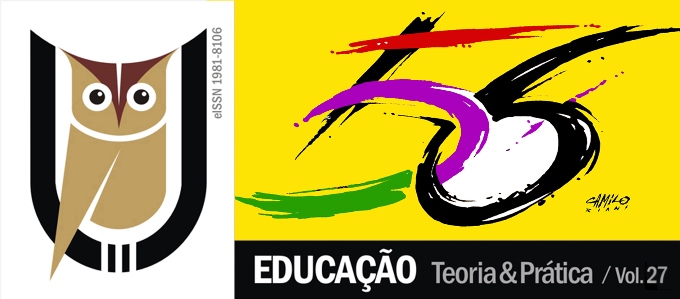EDUCATION AS THE PRACTICE OF FREEDOM AND THE PROSPECT OF INTEGRAL EDUCATION IN HIGHER EDUCATION
DOI:
https://doi.org/10.18675/1981-8106.vol27.n56.p526-541Abstract
In this article we discuss the idea of Education as a Freedom Practice, taking into account an emancipatory perspective of Integral Education for Higher Education. Thus, we reflect on an integral education in opposition to the hegemonic and simplistic version of an education for the market and even in opposition to that which means absorption of superior objective knowledge. The methodology used was the bibliographical research, where we sought a dynamic synthesis between Marxist authors and the colonial / postcolonial discussion. The theoretical horizon was a dialectical historical materialism, but without neglecting that knowledge is beyond the Western gaze and that science is not the only logic of valid knowledge. Given that knowledge is not only a reflection of reality, but the interpretation of this, the search for an integral education is also the search for inter-knowledge. This leads us to deacralize the university and to transform it into a place of building democratic relations. Keywords: Integral Education. Practices of freedom. Higher Education.Additional Files
Published
How to Cite
Issue
Section
License
Authors who publish in this journal agree to the following terms:
a) Authors assign copyright to the journal, with the work simultaneously licensed under the Creative Commons Attribution License that allows sharing of the work with acknowledgment of authorship and publication in this journal.
b) The policy adopted by the Editorial Committee is to assign copyright only after a period of 30 months from the date of publication of the article. After this time, authors interested in publishing the same text in another work must send a letter to the Editorial Committee requesting the release of the assignment of copyright and wait for a response.
c) This journal provides public access to all its content, since this allows greater visibility and reach of published articles and reviews. For more information on this approach, visit the Public Knowledge Project, a project that developed this system to improve the academic and public quality of research, by distributing OJS as well as other software to support the public access publication system to academic sources. The names and email addresses on this website will be used exclusively for the purposes of the journal and will not be available for other purposes. This journal provides open any other party  This work is licensed under a Creative Commons License
This work is licensed under a Creative Commons License











